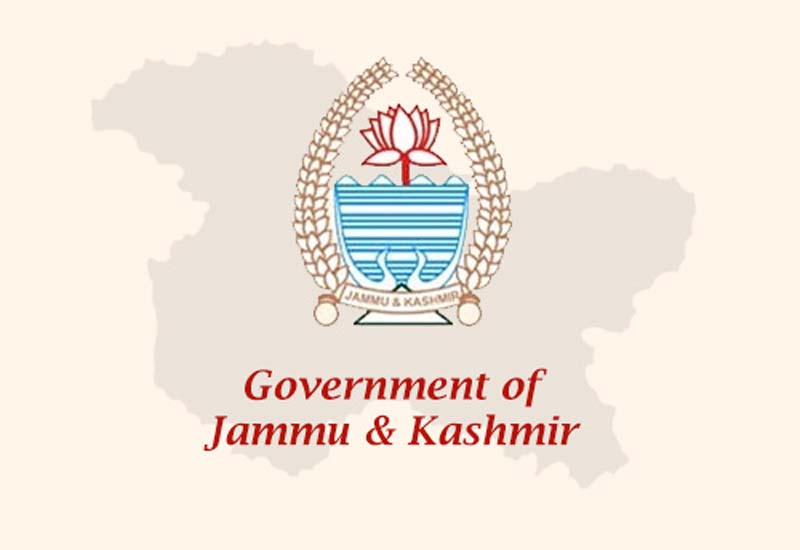Several unwarranted clauses removed, new provisions incorporated
Mohinder Verma
JAMMU, Apr 23: In a major decision, the Government has repealed the Rules of 2013 to check ‘undue interference’ of the State Vigilance Commission (SVC) in the functioning of the Anti-Corruption Bureau (ACB) and ensure that premier investigating agency of the State exercise powers under J&K Prevention of Corruption Act without succumbing to any external pressure.
The EXCELSIOR on numerous occasions highlighted that there was no parity in the Jammu and Kashmir State Vigilance Commission Act, 2011 and J&K State Vigilance Commission Rules, 2013. On April 1, 2019, it was exclusively highlighted that conflict between the Act and Rules was even acting as impediment in filling up of the post of Director Anti-Corruption Bureau (formerly State Vigilance Organization), which as per several senior IPS officers, was weakened due to unwarranted provisions kept in the Rules drafted in 2013.
A day after appointing new Director of Anti-Corruption Bureau, the General Administration Department today came out with SRO-301 which states that Government, in exercise of the powers conferred by Section 18 of the J&K State Vigilance Commission Act, 2011, has framed new Rules and repealed those of 2013.
An analysis of J&K State Vigilance Commission Rules, 2019 in comparison to Rules of 2013 reveals that ‘undue interference’ of the Commission in the functioning of the Anti-Corruption Bureau has completely been checked and now Bureau is not supposed to submit hourly basis reports to the Commission, which was not only hampering the routine working of the Bureau but also causing delay in conducting investigations in a time bound manner.
In Section 20 of the Rules of 2013, it was mentioned that it shall be obligatory on the part of Director Vigilance to ensure that once a case is registered or preliminary enquiry is ordered a copy of FIR or PE along with the copy of complaint is transmitted to the Commission within 24 hours.
However, in Section 20 of new Rules there is no mention of this which means that furnishing copy of FIR or PE to the Commission within 24 hours is not mandatory for the Anti-Corruption Bureau now. Moreover, it was mentioned under Section 20 of Rules of 2013 that Director of Vigilance shall submit the progress reports on monthly basis in all under investigation cases and preliminary enquiries to the Commission and the Commission may, at its discretion, ask for progress report in any FIR case or preliminary enquiry at any time and such reports shall be submitted by the Director Vigilance with utmost promptitude.
However, the new Rules state: “The Director Anti-Corruption Bureau shall submit progress report on quarterly basis in all under investigation cases or preliminary enquiries provided that in case FIR is registered or Regular Departmental Action is ordered, the Anti-Corruption Bureau shall intimate it to the State Vigilance Commission. However, while exercising powers of supervision, the Commission shall not direct the Bureau to provide individual details of the case(s) or investigate or dispose of the case in a particular manner”.
Moreover, under Section 21 of the Rules of 2013 it was mentioned that on the receipt of the progress reports of FIR cases and preliminary enquiries, the Commission shall examine these and convey its observations and directions to the Director Vigilance, who shall take further action so as to bring the investigation or enquiries to the logical conclusion.
However, nothing is mentioned about all these aspects in new Rules. Now, Section 21 states: When the Bureau concludes the investigation of the case and on the strength of the evidence finds that a prima facie case for commission of offence under Prevention of Corruption Act is established it shall prepare a final investigation report and submit the same along with the supporting documents to the Government for accord of prosecution sanction.
“The Government shall in such cases seek advice of the Commission which shall be tendered by the Commission within a period of four weeks. In other cases, where prosecution is not required, the Bureau will intimate the Government of its views and in case the Bureau decides to close the case a report shall be submitted by it to the Government and a copy of the final investigation report shall also be submitted along with the case diary file to the Commission”, the new Rules further state.
Section 26 of Rules of 2013 whereby powers were conferred to the Commission for assessment of the work of the Director Vigilance and his subordinate officers including Investigating Officers has completely been omitted under new Rules.


